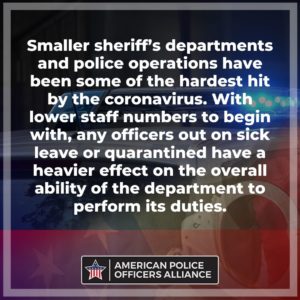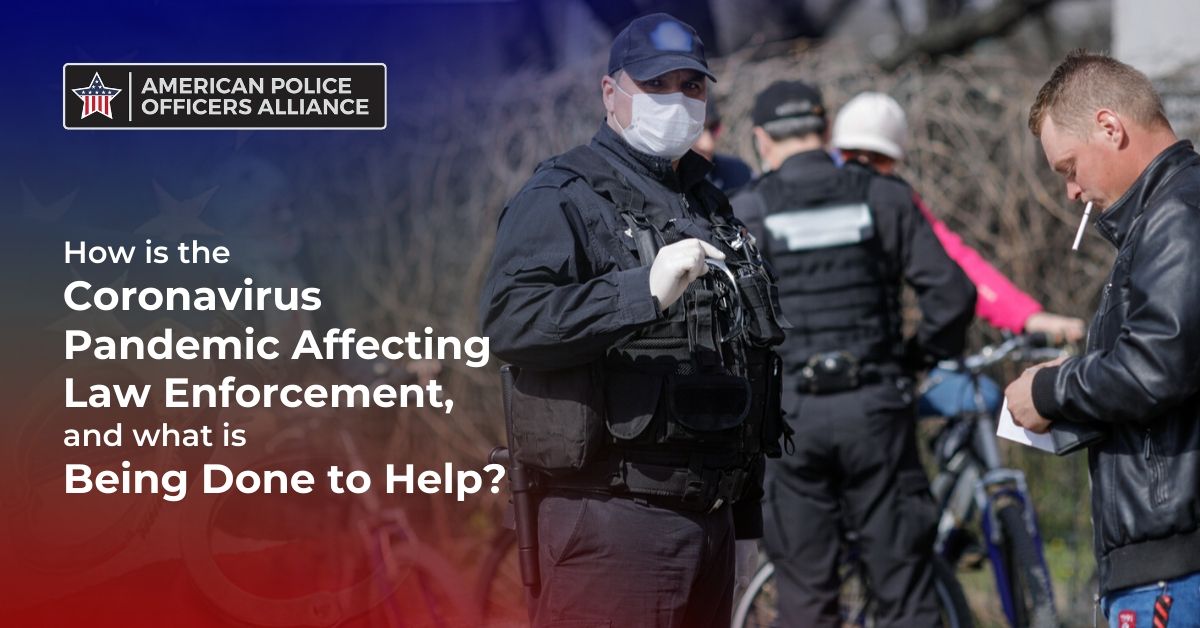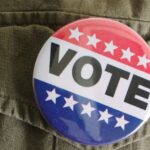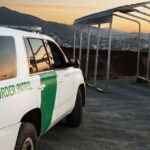It’s an undeniable fact that the novel coronavirus or COVID-19 pandemic has wreaked havoc on virtually every sector in every country in the world. These unprecedented times have affected the law enforcement officers around the U.S. in devastating ways, and it’s unlikely we’ll see a return to normalcy anytime soon. Even as many states begin to lift their stay at home restrictions, social distancing and limiting the spread of bacteria are almost certainly here to stay, in some respect. And with this shift, we will see a corresponding effect on law enforcement. Let’s examine a few ways in which the coronavirus is affecting law enforcement, and what organizations have stepped up to provide help.
Law Enforcement Officers Need Personal Protective Equipment
The reality of the shortage that is facing most frontline industries is also seen in law enforcement. Officers are making fewer traffic stops and keeping their face-to-face interactions to a minimum, but this is a risky strategy as crimes could potentially increase with this practice. Personal protective equipment (PPE) is necessary for officers as they are tasked with coming in regular contact with others. This needs to be made a bigger priority as our country’s police and sheriffs continue to protect our citizens.

Rural Jurisdictions Are Heavily Affected by Coronavirus
Smaller sheriff’s departments and police operations have been some of the hardest hit by the coronavirus. With lower staff numbers to begin with, any officers out on sick leave or quarantined have a heavier effect on the overall ability of the department to perform its duties. One rural department in Moody County, South Dakota has 550 square miles to patrol. Every officer that is affected by the virus and is forced to take time from work is putting a heavier risk and burden on the department. In New York City, one of the hardest hit areas in the world, 17 percent of the NYPD was out sick as of an update published on April 2. These numbers may continue to rise before they level out — and with many states reopening, there will be an even greater need for law enforcement to be fully staffed and healthy.
What is Being Done to Help?
Fortunately, there are several organizations looking out for law enforcement officers and lobbying to provide them with the support they need during this time. One such organization, the National Sheriffs’ Association, has formed an action group designed to find the most effective ways to assist officers on the frontlines.
This is a critical time for law enforcement, and the NSA’s efforts to have an organized plan of action has been helpful in rolling out new protocols and initiatives designed to help officers. Two focal points of the action group are supplying more personal protective equipment to officers as well as providing adequate testing resources. Accurate and fast testing can help departments bolster their staff and forecast any short staffing that may be coming.
Another affected area is prisons and jails. Some inmates have gotten released in an effort to quell the population numbers, but the risk remains imminent that an outbreak might occur. Law enforcement is also tasked with protecting and enforcing protocol in these detention centers, which is why adequate PPE and testing is imperative.
Those who wish to help this and other causes can learn more here.
As our country and the entire world continue to battle the coronavirus pandemic, it’s important to make sure that we do everything we can to protect and support law enforcement. Adhering to any social distancing and/or stay at home protocol, obeying the laws of the road, and supporting candidates that support law enforcement are just a few ways you can do your part.
In April, pro-police legislators are fighting for better legal protections for police officers during the pandemic, including hazard pay and LODD designation for COVID-19. Read more top stories from our Monthly News Roundup.








